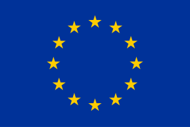Did you miss RELACS’ workshop on the replacement of anthelmintics at the Oxford Real Farm Conference? Then check out the project’s latest news story!
On 10 January 2021, RELACS’ project partners Soil Association and Scotland’s Rural College (SRUC) took part in the Oxford Real Farm Conference 2021 for a workshop session on “Worm Control Without Anthelmintics”.
The event, organised and chaired by Soil Association’s Ana Allamand, took place via Zoom, bringing together over 150 participants from across the world.
Its primary focus was discussing the “Replacement of Anthelmintics in Organic Livestock”, one of the RELACS project’s objectives. It offered participants the opportunity to learn about using bioactive agents as worm control tools, for example heather and Duddingtonia flagrans, a natural strain of fungus isolated from the environment.
As anthelmintic resistance becomes an increasing issue for small ruminant farmers, and reducing reliance on contentious inputs and important goal, these insights on worm controls are crucial.
RELACS has summarized the findings of this event in a recently published news story about the workshop on the replacement of anthelmintics in organic livestock farming.
Visit the RELACS website to learn more and follow the latest project’s developments on Twitter and Facebook using @RELACSeu and #RELACSeu.
RELACS seeks to promote the development and adoption of environmentally safe and economically viable tools and technologies to reduce the use of external inputs in organic farming systems. IFOAM Organics Europe is responsible for the communication and dissemination of project results as well as the coordination of the science-practice-policy dialogue.






